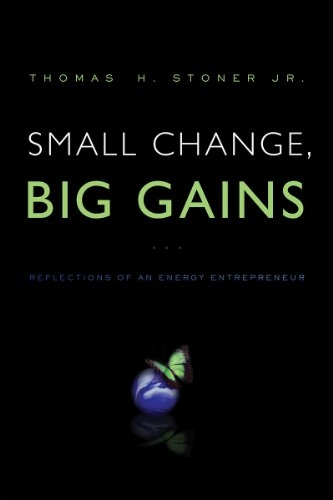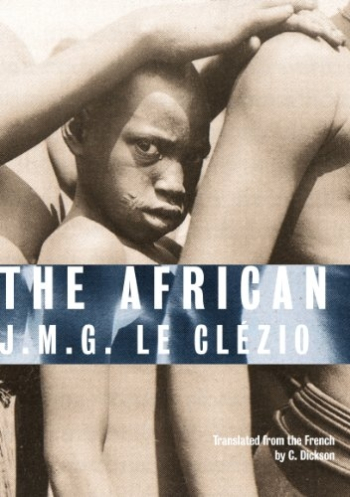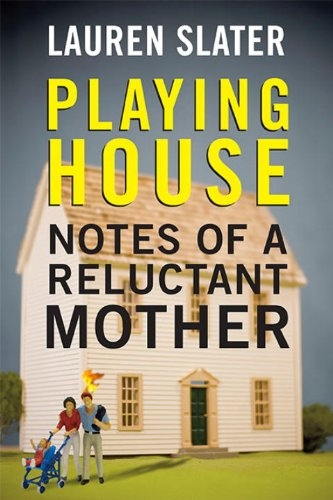Life, Memory, and the Winding Path to Truth
Autobiography and Memoir ForeSight
Memories, scientists tell us, are not dependable. Our brains consistently fill in gaps with what we imagine could have happened rather than what actually did happen. What does this tell us about the memoir? Might the whole genre be filled with a bunch of lies? Certainly not. They’re simply the authors’ memories—sentimental, harsh, exaggerated, inaccurate, selective, human memories. And they add something that many objective histories lack: humanity. Each of these five memoirs highlights the ability of the writer to fill in memory gaps with engaging narrative.
Small Change, Big Gains

Thomas Stoner
Greenleaf Book Group Press
Softcover $24.95 (556pp)
978-1-62634-002-2
Buy: Local Bookstore (Bookshop), Amazon
This book’s genesis comes from the shadow of the statue of Gen. Douglas MacArthur on the beach of Corregidor at the entrance of Manila Bay, where MacArthur uttered his famous “I Shall Return.” What Thomas Stoner sees, though, is not a glorious past but an uncertain future in the flotilla of garbage stinking up the shoreline. What are needed are new heroes, Stoner believes, ones that can rally the troops around a new war against climate change.
Stoner adeptly illustrates how climate-change deniers have eroded support for preventative measures by calling science into question. Yet, doubts insidiously go mainstream when you have folks on the fringe, such as Sen. James Inhofe (ROK), who called climate change a “hoax” and “impossible because of God’s presence in protecting our home, the planet,” and compared the EPA to the Gestapo. Stoner writes that while Inhofe’s “wild claims sounded crazy to most,” it did make other false statements seem more reasonable by comparison—for example, the Wall Street Journal’s claim that CO2 is not a pollutant.
Stoner ends each chapter with “Key Observations” that would be appropriate in a classroom textbook, and some of the well-researched positions he takes have a textbook feel. Then, out of the blue, Stoner injects his own memories. For example, he takes us back to another seminal time in his life. It’s 1977, and he’s watching Star Wars, where the germ of an idea is planted: the notion that a “corrupt power system represented by mindless masses and power-hungry politicians wanting to dominate the universe” can be defeated by a small group of rebels. Of course, what was on their side was the Force. “As I see it, this concept of the Force embodies the inner determination and willfulness that are required in order to make a change.”
This memory of the first time he saw Star Wars helped set the pattern for his later career.
HOWARD LOVY (August 31, 2013)
The African

J. M. G. Le Clezio
David R. Godine
Hardcover $22.95 (128pp)
978-1-56792-460-2
Buy: Local Bookstore (Bookshop), Amazon
In this brilliant translation of Nobel Laureate J. M. G. Le Clézio’s book The African, the now-seventy-three-year-old writer goes back to his childhood spent in Nigeria, the son of a French military doctor posted to Africa. Told through the fog of memory, the author’s adult mind reanalyzes his childhood, adding layer upon layer of meaning.
The narrative has a poetic, otherworldly feel to it as both father and son struggle to control their own environments. They realize what other Europeans would learn the hard way: that eventually Africa would swallow them. They bend to Africa’s will, and not the other way around. Much later, after two decades, the father understands the futility of colonialism, the winless war against disease, with tools that did not work or were not plentiful enough. Europeans are more helpless than the termites and scorpions that the son taunted and killed in his youth.
But for the son, Africa is also freedom from the bombings of his birthplace in France during WWII. Later, after the end of Nazi occupation, the mother is challenged by friends in Paris who ask why she would move her family to the land of savages? “They’re no more savage than the people in Paris,” the mother replies.
As for his father, the son has two images: the happy father he never knew but saw in photographs, before the war isolated him; and the one after the war—embittered, stern, paranoid about germs and disease, who hit his children with a switch over childish pranks. “Today, in hindsight, I understand that my father was transmitting the most difficult part of an upbringing to us—that which no school will ever provide. Africa hadn’t transformed him. It had brought out rigor in him, … but also exactness and respect, like one of the rules of the ancient societies of Cameroon and Nigeria, where children must not cry, must not complain.”
Yet, Le Clézio can come to this conclusion about his stern father only after a lifetime of experience, looking back through the haze of memory.
HOWARD LOVY (August 31, 2013)
The People’s Advocate
The Life and Legal History of America’s Most Fearless Public Interest Lawyer

Daniel Sheehan
Counterpoint
Softcover $30.00 (672pp)
978-1-61902-172-3
“Fearless” is a word that not too many people can appreciate until they are faced with a situation that calls for an actual fearless act. And Daniel Sheehan, with the resources of government actively working against him, has been among US history’s most fearless lawyers.
He was fearless from the beginning, when he first learned what the word “political” really meant. At age seventeen, he clashed with Senator Jacob Javitz over an appointment to the United States Air Force Academy. Instead, it went to the son of a major campaign contributor. This teenager would grow up to become a lawyer on some of the most politically hot cases in a generation: the Pentagon Papers, Watergate, Iran/Contra, among many others.
His memories are both fascinating and horrifying. Fascinating because Sheehan places you directly inside the halls of power, and horrifying for the same reason. “Look, Danny,” one House investigator tells Sheehan, “if anyone is so ignorant that he doesn’t know that the Central Intelligence Agency has been smuggling heroin from Southeast Asia through Cuba into the United States for decades to secretly finance first the Nationalist Chinese and later their covert operations in Southeast Asia, then that person is too ignorant to function effectively in Washington, D.C.” At the same time, Sheehan is told, “Don’t make the foolish mistake of trying to tell the American people about the secret history of the United States.”
Sheehan resolved to do “everything I could to change that operating principle in Washington.”
Beginning with the Pentagon Papers—a case that echoes into today’s news over the people’s right to know what the government is doing—Sheehan has fulfilled that promise to himself. This memoir takes us directly inside Sheehan’s fearless mind.
HOWARD LOVY (August 31, 2013)
Playing House
Notes of a Reluctant Mother

Lauren Slater
Beacon Press
Hardcover $24.95 (208pp)
978-0-8070-0173-8
Buy: Local Bookstore (Bookshop), Amazon
Lauren Slater’s obsessive-compulsive disorder manifests in various ways in this collection of essays—she counts by increments of three to keep the moon in orbit and planes from falling. But, surprisingly, there is no dilemma over whether she should pass on those traits to offspring. “After all,” she writes, “the same genetic structure that drives me to check and tap also spurs me to put words on a white page, to garden until the yard is a riot of reds, yellows and delphinium blues each summer. My genes, like everyone else’s I think, are both flower and thorn.”
With the birth of Slater’s first child, we find her in the “contemporary female dilemma of juggling two balls, motherhood plus career. But there is a third ball here, and it has been overlooked: Mental illness.” But what she experiences when she decides to go back to work full-time and let her husband take care of the baby is perfectly normal for a parent—guilt at not spending more time with her child.
It all adds up to a title that is somewhat of a misnomer. Slater is not “playing house.” She is going through a normal life. But when you have obsessive tendencies and depression, even normalcy seems to you, and only you, to be life on the “fringe.”
HOWARD LOVY (August 31, 2013)
Ethel Merman, Mother Teresa … and Me
My Improbable Journey from Chateaux in France to the Slums of Calcutta, A Memoir
Tony Cointreau
Mixed Media Memoirs
Hardcover $24.95 (312pp)
978-0-9897899-0-5
Tony Cointreau writes of a life and career that took him from the elegance of Park Avenue to the poorest slums on earth. He is, at heart, a showbiz guy, and while his writing may lack literary polish, any reader can detect the seriousness and passion of a man who grew up unloved and abused even within his rarefied world.
So, his connection with these disparate women—Broadway star Ethel Merman and, later, Mother Teresa—illustrates his need for surrogate mothers. We care about this man’s life not so much for his own story but for the way he brings two larger-than-life personalities down to our level.
We hear about the private pain of Merman’s rocky relationship with her daughter—before the spotlights hit her, and before the public Merman with “a power that could overwhelm and thrill you with its laser-like beam” took shape. And behind Cointreau’s descriptions of Mother Teresa’s genuine humility, there is also an inquisitiveness about the nature of the poverty and disease against which she fought her entire life. “She also worried about the increase in AIDS cases around the world, and constantly asked me why, for which I had no answer except ‘ignorance and drugs.’”
Perpetual “mother” and the ever-seeking “son” are equally baffled about the nature of disease, and the scene is especially powerful for the visual image one gets of two ordinary humans talking.
HOWARD LOVY (August 31, 2013)
Howard Lovy
